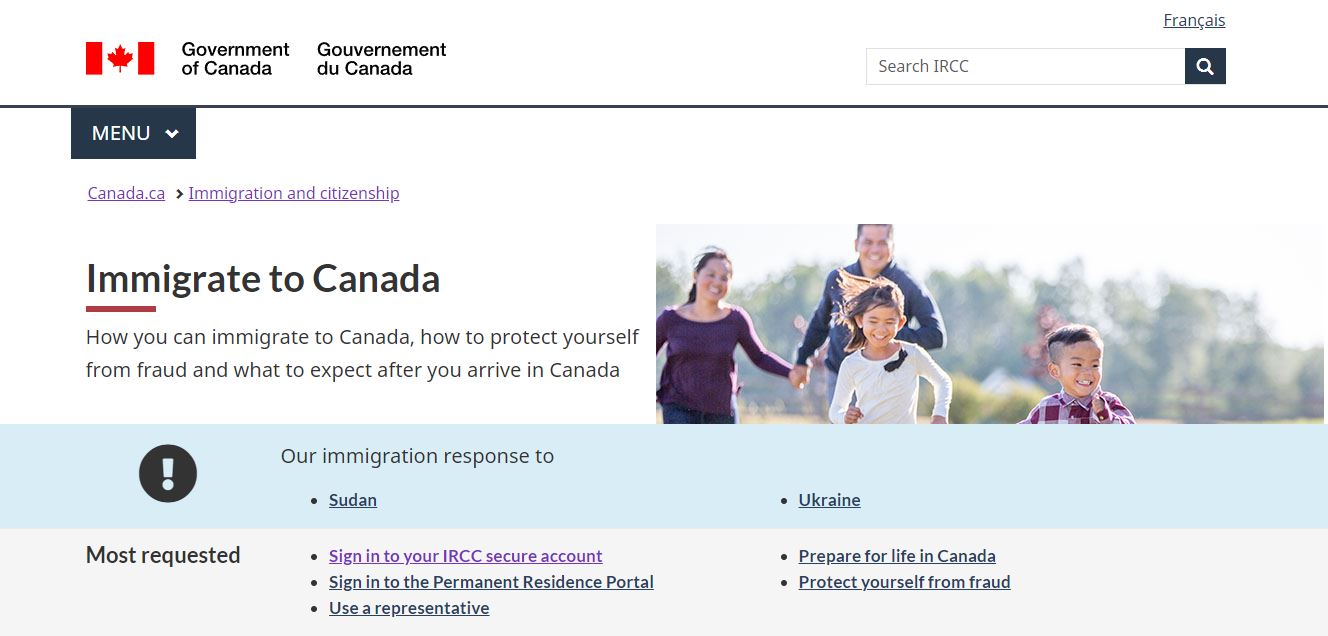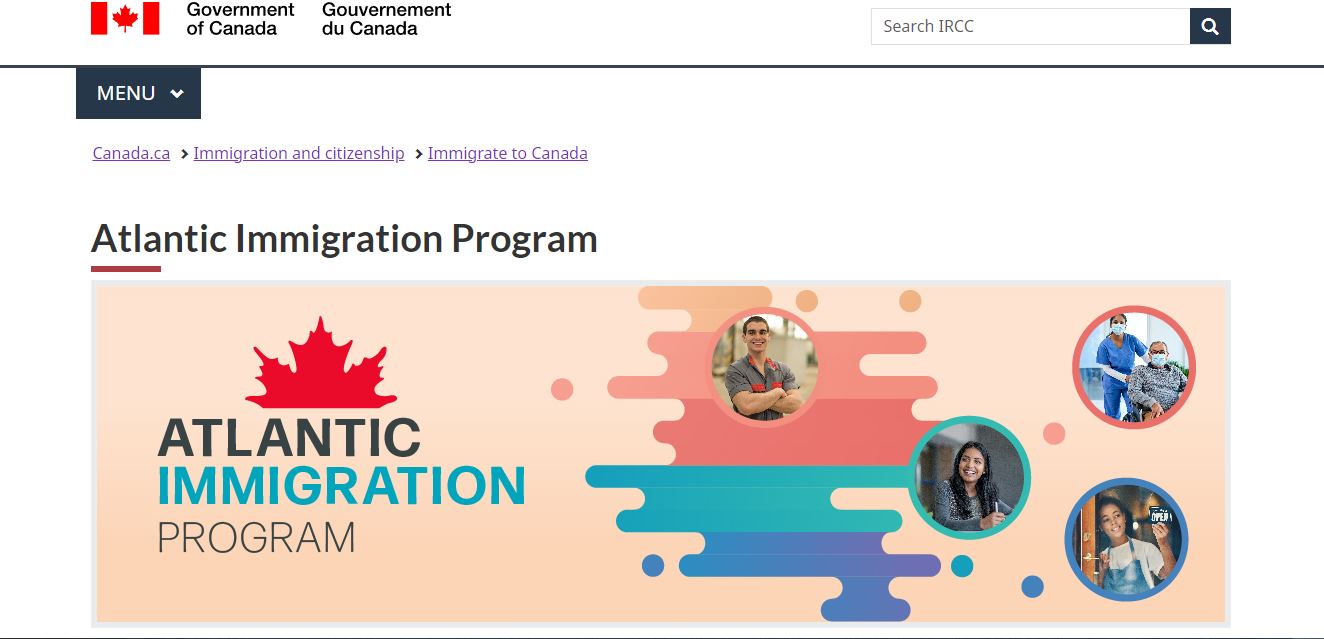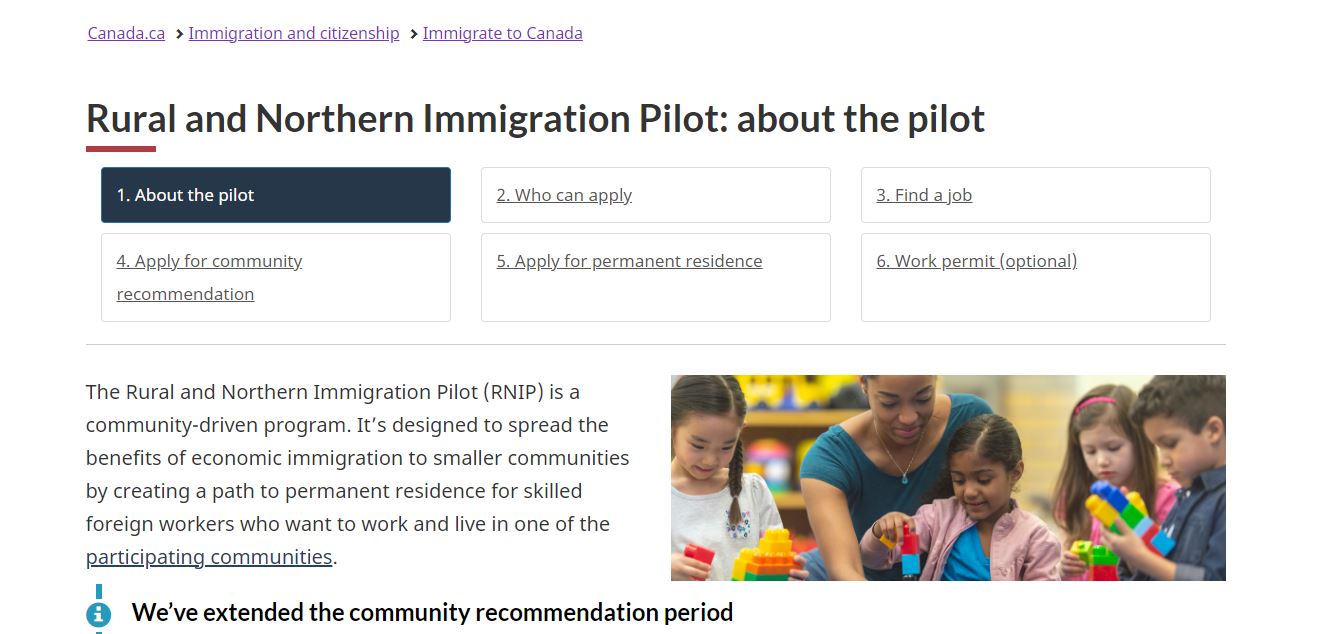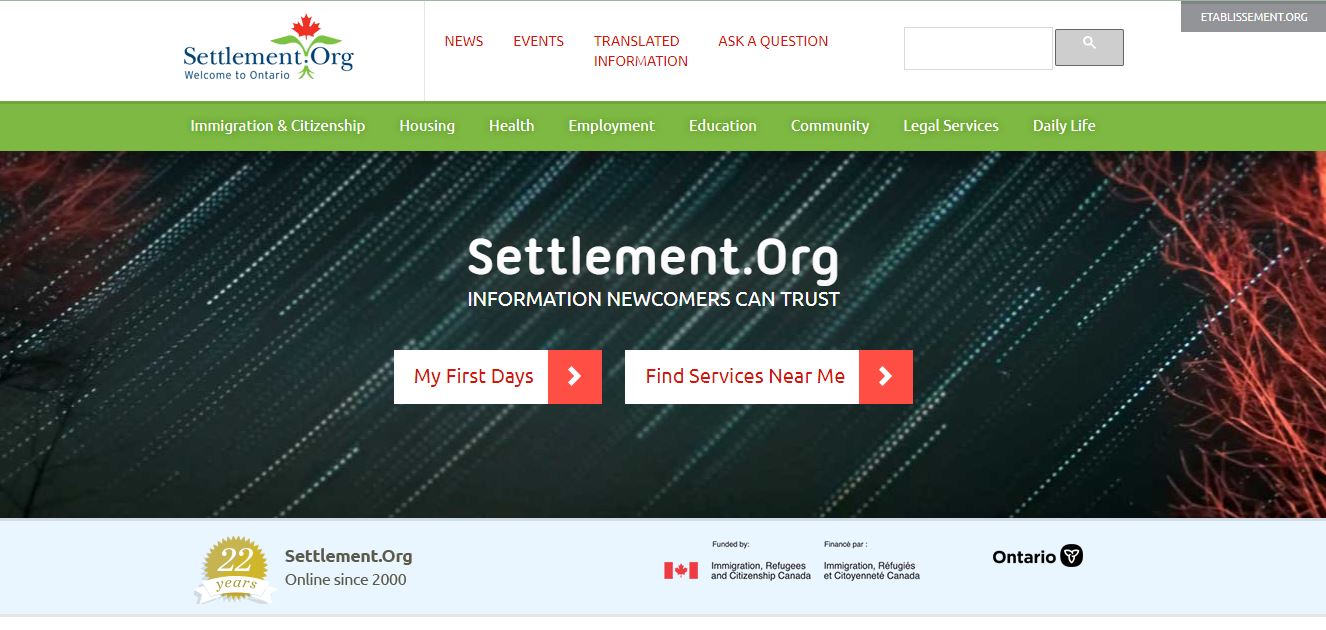Canada Settlement Visa Shocker: What They WON’T Tell You (But We Will!)
Canada Settlement Visa Shocker: What They WON’T Tell You (But We Will!)
Moving to Canada is a dream for many, but exploring the immigration process can be challenging. One crucial aspect of this journey is obtaining a Canada Settlement Visa, which lays the foundation for a new life in this great country. In this guide, we’ll cover everything you need about the Canada Settlement Visa process, from understanding its importance to ensuring a seamless transition to Canadian life.
Understanding the Canada Settlement Visa
So, what exactly is a Canada Settlement Visa, and why is it important? Well, think of it as your golden ticket to starting a new chapter in Canada. This visa, also known as a permanent resident visa, grants individuals the right to permanently live and work in Canada. It’s the first step towards becoming a Canadian citizen and offers a pathway to enjoying all the benefits of life in the True North.
Eligibility Criteria for Canada Settlement Visa
To be eligible for a Canada Settlement Visa, you’ll need to meet certain criteria set by the Canadian government. These criteria typically include factors such as education, work experience, language proficiency, and adaptability. Essentially, Canada wants to ensure that you’ll be able to integrate successfully into Canadian society and contribute positively to the country’s economy and culture.
Canada Settlement Visa Programs
Now, let’s talk about the different types of settlement visas available for various categories of immigrants. Canada offers a range of immigration programs tailored to meet the needs of different individuals and families:
Express Entry
This program assesses candidates based on factors like work experience, education, language skills, and age. It’s ideal for skilled workers with strong profiles.
Provincial Nominee Programs (PNPs)
Each Canadian province and territory has its own PNP program tailored to its labor market needs. These programs may offer faster processing times than Express Entry.
 Quebec Skilled Worker Program
Quebec Skilled Worker Program
Designed for skilled workers seeking settlement in Quebec. It has a distinct application process that is separate from federal programs.
Atlantic Immigration Program (AIP)
This is aimed at attracting newcomers to Atlantic Canada, including New Brunswick, Prince Edward Island, Nova Scotia, and Newfoundland and Labrador. It’s open to skilled workers, international graduates, and entrepreneurs.
Caregiver Programs
These pathways lead to permanent residence for caregivers who have worked in Canada under specific caregiver programs for a designated period.
Start-Up Visa Program
This program is for entrepreneurs looking to establish and manage a business in Canada.
Self-Employed Program
This opportunity is for individuals with exceptional skills in cultural or athletic activities who can contribute to Canada’s self-employment sector.
ALSO READ: Your Ultimate Guide to Canada Express Entry for Investors (2024).
Rural and Northern Immigration Pilot
Targets skilled workers willing to reside and work in smaller Canadian communities.
Agri-Food Pilot
This is for individuals with experience in specific agri-food occupations.
Step-by-Step Guide to Applying for a Canada Settlement Visa
The application process isn’t as difficult as you might think. But to sail through smoothly, you need to do these things rightly.
Research and Planning
Before you pack your bags in preparation for a journey to Canada, there’s some important groundwork to cover. First, research and planning. This phase is like laying the foundation for your new Canadian trip, and trust me, you want it to be rock solid. By researching visa requirements and the Canadian immigration system, you’ll be better equipped to explore the twists and turns that lie ahead in the visa process and immigration policies.
But where do you start, you ask? Fear not, for the internet is your best friend in this endeavor. Plenty of resources are available online to help demystify the Canadian immigration system and guide you through the visa application process. Websites like the Government of Canada’s official immigration portal and reputable immigration law firms offer valuable insights and up-to-date information on visa requirements, application procedures, and more.
Here are a few helpful resources to kickstart your research:
Gathering Required Documents
Gathering the necessary documents for your settlement visa application is like assembling the ingredients for a recipe—you want to make sure you have everything you need before you start cooking up your Canadian dream. Proof of Identity
Proof of Identity
You’ll need to provide a valid passport or other government-issued identification to prove who you are. Ensure your passport is up-to-date and has plenty of validity before it expires.
Proof of Funds
Canada wants to ensure that you and your family can support yourself once you arrive. You’ll need to provide proof of sufficient funds to cover your living expenses, such as bank statements, investment statements, or a letter of financial support from a sponsor.
Police Clearance Certificate
Canada takes security seriously, so you’ll need to provide a police clearance certificate from any country where you’ve lived for six months or more since the age of 18. This certificate confirms that you have no criminal record or pose no security risk.
Medical Examination Results
To ensure that you’re in good health and won’t pose a risk to public health and safety, you’ll need to undergo a medical examination by a designated physician. The results of this examination must be submitted along with your visa application.
Proof of Relationship (if applicable)
If you’re applying for a family sponsorship visa, you’ll need to provide proof of your relationship with your sponsor, such as marriage certificates, birth certificates, or adoption papers.
 Now that you have a checklist of the essential documents, it’s time to get organized. Start by creating a folder or digital file where you can keep all your records safe and easily accessible. Make copies of everything and keep them in a separate location as a backup.
Now that you have a checklist of the essential documents, it’s time to get organized. Start by creating a folder or digital file where you can keep all your records safe and easily accessible. Make copies of everything and keep them in a separate location as a backup.
Labeling each document clearly and keeping it organized according to the requirements outlined in the visa application instructions is a good idea. This will streamline the application process and impress the immigration officers with your attention to detail.
Completing the Application Form
Here, we’ll discuss the settlement visa application form like a boss. Trust me, it’s not as challenging as it may seem. Think of it as filling out a job application—you just need to put your best foot forward.
So, let’s walk through the process together, shall we?
Personal Information
The first section of the application form will ask for your basic personal details, such as your name, date of birth, and contact information. Make sure to double-check your spelling and accuracy—you don’t want any typos creeping in at this stage.
Immigration History
You’ll need to provide details about your immigration history, including any previous visits to Canada and your previous visa applications, if applicable. Be honest and thorough in your responses – honesty is always the best policy when it comes to immigration matters.
Family Information
This section will require you to provide information about your family members, including their names, dates of birth, and relationship to you. If you’re applying for a family sponsorship visa, you’ll also need to include details about your sponsor and their family members.
ALSO READ: Register a Business in Canada as an Immigrant: A Step-by-Step Guide
Education and Work History
Canada wants to know about your education and work experience to assess your eligibility for the settlement visa. Be sure to include information about your highest level of education, as well as details about your employment history and any professional qualifications you may have.
Declaration and Signature
Finally, you’ll need to read through the declaration carefully and sign the form to confirm that all the information you’ve provided is true and accurate.
Common Mistakes to Avoid
One of the biggest issues is rushing through the form without carefully reading each question and providing accurate information. Take your time, read each question carefully, and double-check your responses before submitting the form.
Another common mistake is failing to provide supporting documentation or providing incomplete documentation. Remember, the application form is just one part of the process – you’ll also need to submit various supporting documents to support your application. Make sure to include all the required documents and ensure they are complete and up-to-date.
Submitting the Application
Submitting your Canada settlement visa application is where the rubber meets the road. So, let’s make sure you’re prepared for the journey ahead.
 Submission Process
Submission Process
Luckily, Canada offers online and offline options for submitting your application so that you can choose the best method for you. If you’re a tech-savvy individual who loves the convenience of doing things online, you’ll be happy to know that many visa applications can be submitted electronically through the Government of Canada’s official immigration portal. Create an account, fill out the online forms, upload your documents, and hit submit. It’s as easy as pie!
But if you’re more old-school and prefer the traditional pen-and-paper approach, fear not. You can still submit your application by mail or in person at a designated visa application center. Just make sure to follow the instructions carefully and double-check that you’ve included all the necessary documents before sealing the envelope or handing over your application in person.
Tracking Visa Application Status
Waiting can be the hardest part, but Canada offers several options for monitoring your visa application. You can check the status online through the same portal where you submitted your application, or you can opt to receive updates via email or text message. It’s like having a personal assistant keeping you informed every step of the way.
Request for Additional Information
If you receive this request after your visa application, don’t panic! It’s not uncommon for immigration officers to require more details or clarification on certain aspects of your application. If this happens, follow the instructions provided and provide the requested information in a timely manner. Remember, communication is key, so don’t hesitate to contact the immigration authorities if you have any questions or concerns.
Waiting Period and Decision
Good things come to those who wait, right? Let’s go into what you can expect during this period and how to keep cool while waiting for that golden ticket to Canada.
Canada Settlement Visa Processing Time
The waiting period can vary depending on a multitude of factors, from the volume of applications received to the complexity of your case. On average, you can expect to wait anywhere from a few weeks to several months for a decision on your application. Patience is key here, folks – Rome wasn’t built in a day, and neither is your Canadian dream.
ALSO READ: A Comprehensive Guide to Canada Tourist Visa: Everything You Need to Know
Factors Affecting Your Visa Processing Time
One major factor is the type of visa you’re applying for. Some visa categories may have shorter processing times than others, so it’s important to research and choose the one that best fits your situation. Additionally, your country of origin can also affect the processing time, as certain countries may have different processing procedures or security checks in place.
Other factors that may affect processing times include the accuracy and completeness of your application, any additional information or documentation requested by immigration officers, and any changes to immigration policies or procedures.
Preparing for Settlement in Canada
After you’ve submitted your Canada settlement visa application and are patiently waiting for that golden ticket, you’re free to start thinking about the logistics of your arrival in Canada. From flights to accommodation and everything in between, let’s make sure you’re well-prepared for your big move.
Arrival Logistics
First, let’s talk about flights. You’ll want to start researching and booking your flights well in advance to secure the best deals and ensure a smooth journey to Canada. Whichever country you’re flying from, there are plenty of airlines and routes to choose from. Be sure to consider factors like layovers, travel dates, and baggage allowances when making your decision.
 Accommodation
Accommodation
Finding a place to call home in Canada is a top priority, so it’s a good idea to start looking for accommodation as soon as possible. Whether you’re planning to rent an apartment, stay in temporary housing, or crash with friends or family, there are plenty of options to suit every budget and preference. Websites like Airbnb, Craigslist, and Rentfaster can help you find listings in your desired area.
Transportation
Once you’ve landed in Canada, you’ll need a way to get around town. Depending on where you’re settling, you may want to consider renting a car, using public transportation, or even biking or walking if you’re feeling adventurous. Familiarize yourself with local transportation options and plan accordingly to ensure a smooth transition to Canadian life.
Canada is known for its warm hospitality and welcoming spirit, and plenty of resources are available to help newcomers settle in and feel at home. Organizations like settlement agencies and welcome services offer a wide range of support services, from language classes to job placement assistance to cultural orientation programs. Take advantage of these resources to make your transition to Canada as seamless as possible.
Integration and Adaptation
One of the most important aspects of settling in a new country is integration and adaptation. Adapting to Canadian culture and society is key to making the most of your Canadian experience and feeling like you truly belong.
Importance of adapting to Canadian culture and society
Canada is known for its diverse population and multiculturalism, so embracing different cultures and traditions is part of what makes Canada so special. Whether you’re enjoying poutine in Quebec, cheering on the Toronto Raptors, or celebrating Diwali in Vancouver, there’s something for everyone in the mixture of Canadian culture.
Language
While English and French are the official languages of Canada, you’ll find a bunch of languages spoken across the country, reflecting its rich cultural values. If you’re not fluent in English or French, don’t be afraid- plenty of resources are available to help you improve your language skills. There are endless opportunities to improve your language proficiency and connect with others, from language classes to language exchange programs to language apps like Duolingo.
Networking
Building a strong support network is essential for success in Canada, whether it’s finding a job, making new friends, or accessing community resources. Get involved in local clubs, organizations, and community events to meet like-minded individuals and expand your social circle. You never know who you might meet or what opportunities may arise!
Accessing Community Resources
Canada is known for its robust social safety net and support services, so don’t hesitate to reach out if you need assistance. From healthcare to housing to employment support, plenty of resources are available to help you easily explore life in Canada. Check out your local community center, library, or government website for information on available services and programs.
Employment and Education
Whether you’re looking to jumpstart your career or further your education, Canada offers a wealth of opportunities to pursue your dreams and aspirations.
Finding Employment in Canada
Now, I won’t sugarcoat it – job hunting can be a challenge, but with the right approach and a bit of perseverance, you’ll be well on your way to landing your dream job. Start by updating your resume and LinkedIn profile to showcase your skills and experience in the best possible light. Then, tap into your network and reach out to contacts in your industry for advice, referrals, and job leads. Networking is key, folks, so don’t be afraid to put yourself out there and make connections.
Resources for Job Searching
Plenty of resources are available to help you explore the Canadian job market. Websites like Indeed, LinkedIn, and Glassdoor are great places to start your job search and explore available opportunities in your field. Additionally, consider reaching out to recruitment agencies and job placement services for personalized assistance and support in finding employment.
Education
Whether you’re looking to further your education or acquire new skills, Canada’s world-class education system offers a wide range of options to suit every interest and career goal. From universities and colleges to vocational schools and apprenticeship programs, there’s something for everyone in the Canadian education landscape.
ALSO READ: 10 Remote Job Opportunities for Immigrants in Canada
Before going into your studies, it’s important to understand the Canadian education system and how it differs from what you may be accustomed to in your home country. Familiarize yourself with different institutions’ admission requirements, application procedures, and program offerings to ensure a smooth transition to Canadian academia.
Additional Resources
Here are some additional resources to help you along your Canadian journey:
Settlement Agencies
These organizations offer a wide range of support services to newcomers, including language classes, job placement assistance, and cultural orientation programs. Check out organizations like Settlement.Org or YMCA Canada for support tailored to your needs.
 Welcome Services
Welcome Services
Many cities and provinces in Canada offer welcome services for newcomers, providing information on housing, healthcare, education, and more. Visit the website of your local government or community center to learn more about available services in your area.
Newcomer Guides
From understanding Canadian culture to exploring the healthcare system, newcomer guides offer valuable information and tips for settling in Canada. Check out resources like the Welcome to Canada guide from the Government of Canada or the Newcomer’s Handbook for Canada for comprehensive information on life in Canada.
Language Learning Resources
Whether you’re looking to improve your English or French language skills, plenty of resources are available to help you succeed. Websites like ESL Library, FluentU, and Tandem offer interactive language learning tools and resources to help you brush up on your language skills.
Job Search Platforms
When it comes to finding employment in Canada, online job search platforms are your best friend. Websites like Indeed, LinkedIn, and Monster.ca offer thousands of job listings across various industries and locations. You can set up job alerts, customize your search criteria, and apply to job postings matching your skills and experience.
Education Portals
If furthering your education is on your radar, explore education portals like Study in Canada or EduCanada for information on universities, colleges, and vocational schools across the country. These portals offer resources on admission requirements, program offerings, and scholarship opportunities to help you make informed decisions about your education.

I’m interested need job work electrician
Help me visa i want move to canada
I’m interested need job security services I’m ex army junior commissiond officer from Pakistan army my experience 26 years ago and I am physical training instructor, Apply for security services job
interested
I love traveling and learning
free business
I’m with my passport right now